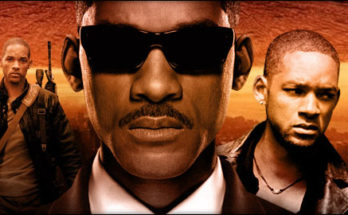Despite borrowing ideas from its science-fiction predecessors, Total Recall manages to create a uniquely vivid and intriguing dystopian vision. Interesting concepts abound, from synthetic police androids to “gravity reversal” elevators, and the futuristic settings are expansive and gorgeously detailed. But for a world so heavily populated, it’s surprisingly difficult to find engaging inhabitants. The protagonists’ development receives little attention and the human villains appear to possess less emotion than their automated colleagues. The film often shies away from building character in favor of constructing complicated action sequences, and as energized as many of these moments are, the relentless pacing only works to dull their overall impact. At its finest, Total Recall is an exciting adventure flick – at its worst, it reminds one that no amount of lavish spectacle can compensate for underdeveloped characters and minimal storytelling.
At the end of the 21st century, extensive chemical warfare has vastly reduced the livable areas of the earth. The United Federation of Britain has emerged as the leading power, and the subjugated “Colony” below faces oppression and rapidly declining conditions. Relegated to a dismal apartment and a tedious factory job, Douglas Quaid (Colin Farrell) longs for more in his life. Haunted by lucid dreams of adventure, Doug is enticed by the advertisements of “memory implants” at the mysterious Rekall facility. Opting to receive the fabricated memories of a secret agent, Doug is thrown into a perilous world of espionage when the procedure backfires and he’s left unsure of his own identity. Hunted by a woman he thought he knew (Kate Beckinsale) and aided by one from his nightmares (Jessica Biel), Doug must unlock the secrets of his past to save both his own life and the very fate of the Colony.
The idea of a perpetual chase in an action film can be thrilling. But Total Recall demonstrates just how monotonous it actually is, unraveling its story at a breakneck pace with very few pauses for exposition. The story is familiar, seldom deviating from the post-apocalyptic machinations explored in Paul Verhoeven’s 1990 adaptation of Philip K. Dick’s short story “We Can Remember It for You Wholesale” (credited by both as inspiration), so it’s likely that a rapid setup is all that’s necessary. And it’s a grand science-fiction premise, with room for surprises due to the nature of audiences being as oblivious to reality as the hero is to his own identity. But the ceaseless adventure has such a consistent tone that no particular sequence stands out. In many actioners (including The Spy Who Loved Me, which is nodded to by a brief shot of Quaid reading the Ian Fleming novel) there’s a build to an explosive climax, accentuated by solid but smaller scale arrangements that aren’t of the elaborate, powerhouse caliber of the finale. Here, one of the initial chase sequences is infinitely more impressive than the final boss fights (another element designed around James Bond’s popular villain hierarchy), and a zero gravity predicament isn’t given enough of a unique boost to be the mind-blowing advent of the denouement that it could have been.
Despite the round-the-clock nature of the action, including complex chases to, from, and through numerous buildings, in elevators, trains, cars, and across rooftops, the sequences themselves provide modest entertainment. It’s difficult not to be amused by the choreography, most of which makes use of the futuristic sets and settings that can’t help but look extremely derivative of Blade Runner via heavy oriental designs, excessive humidity, neon signs, and advertisements (the area itself is called “New Asia”). A couple of the cleverer plot tricks utilized in the first film are reused by director Len Wiseman (unfortunately not as effectively), such as a killer wife and attempts to confuse viewers as to which events are dreams, memories, or real life; so too are unforgettable visuals such as an implanted tracking device and a three-breasted hooker. The synthetic armies of Stormtrooper knockoffs don’t top the list of creative new additions, however, nor does Cohaagen and his lengthy evil goodbyes or Beckinsale as a ludicrously robotic assassin who accomplishes more superhuman stunts and slow-motion poses than Farrell’s shirtless appearances. Even in the realm of science-fiction, her character is unbelievable.



